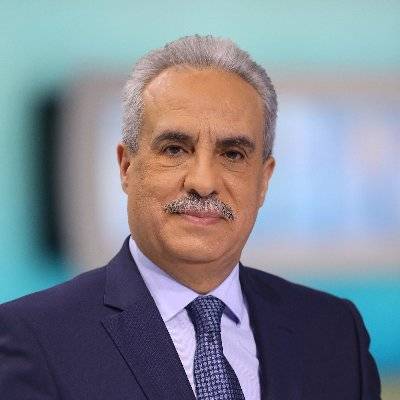One of the most prominent officials close to the president of Tunisia described the latter’s approach to the current situation in his country thus: “It is as if you are giving an aspirin to a person with cancer.”
The former dean of the Faculty of Law at the University of Tunis, Sadok Belaid, was appointed by President Kais Saied to head the committee charged with drafting a new constitution. He explained this issue in an interview with Le Monde: “He [Saied] is completely out of touch on this matter; he doesn’t know anything about the current issues in the country, about the illness the country is suffering from at the moment, be it economic, social, cultural or environmental. We cannot say we will improve the political organisation of the country so that things will go better in it.”
What Belaid said is true, but that does not absolve him of his own responsibility. He was part of the team which wanted to provide the patient with that aspirin, actively trying to mislead him while knowing full well that neither the diagnosis nor the treatment was correct. This was before being shocked that the text of the draft constitution that was published had nothing to do with what he had prepared with the other members of the committee, who were fewer in number than the fingers of one hand.
All the talk now in Tunisia revolves around the new constitution which is the subject of the referendum on 25 July, although the document in question is definitely on a par with an aspirin for a patient suffering cruelly from cancer. Tunisia is in a catastrophic state on almost all levels and nothing about this bitter situation will change by holding a referendum and issuing a new constitution. This will only escalate the situation further and make it worse, because it means that “Dr” Saied still insists on the wrong diagnosis and the wrong prescription.
READ: Why would Arabs want democracy if it means unemployment, poverty, insecurity and corruption?
This is happening while Tunisia is being warned that it may fall into a cycle of default on its $35 billion debt for the first time in its history, and its wheat stocks were about to run out at the end of last month until the World Bank rushed to provide it with aid worth $130 million to help pay for wheat shipments. It is also a time when the country resorts to using its strategic oil stock for the domestic market with the risk that this poses to the national electricity network and the need to secure basic facilities such as hospitals.
![Kais Saied, Tunisia president dissolves parliament 'to preserve the state' - Cartoon [Sabaaneh/Middle East Monitor]](https://i0.wp.com/www.middleeastmonitor.com/wp-content/uploads/2022/04/IMG-4744.jpg?resize=933%2C579&ssl=1)
Kais Saied, Tunisia president dissolves parliament ‘to preserve the state’ – Cartoon [Sabaaneh/Middle East Monitor]
The country is also facing serious tension between Saied and his political opponents, with a corresponding rise in hatred and animosity within society. It is also a time when there are absolutely no signs of political or societal dialogue, with total official disregard for the reservations of political parties, associations and personalities prevailing over any progress made by the government. The Tunisian General Labour Union has expressed its concerns about the “economic reforms” that the government is currently imposing unilaterally, and the judges’ anger and their long strike. Some are going on hunger strike.
At a time when all this and much more is taking place, what value is any referendum, especially when it takes place in a context whose legitimacy is challenged? What is the value of voting on a constitution that almost everyone agrees grants the president “pharaonic powers” or “supreme guide powers” making him completely unsupervised and unaccountable? What will change in Tunisia when the referendum result is announced? In a nutshell, nothing at all; there will simply be more complexity and decay.
We can expect intensified political polarisation, and the deterioration of state finances and the economy. There will also be a continuation of the decline in the level of public services in terms of administration, transportation, international airports, hospitals, the availability of medicines and street cleanliness. Meanwhile, Kais Saied will continue to govern unilaterally through presidential decrees until a parliamentary election is held in December, if it actually takes place at all. We do not know which electoral law it will be held under and who will participate, since almost all of the parties reject the president’s approach altogether, except for a few who represent very little. Saied’s decrees and other “emergency measures” haven’t solved any of the country’s problems a year after being imposed, and it is unlikely that he will solve any before December.
Every citizen is free to take part in the referendum, but it is very useful to understand from now that the aspirin that he or she will help to administer to the patient will not only fail to cure the latter, but also hasten its demise. A referendum on a new constitution is not the medicine that Tunisia needs.
Tunisia: Saied poised for more power but economy crumbles
This article first appeared in Arabic in Al-Quds Al-Arabi on 12 July 2022
The views expressed in this article belong to the author and do not necessarily reflect the editorial policy of Middle East Monitor.


![Supporters of Free Constitutional Party gather to stage a protest against the constitutional referendum, which will be held on July 25, in Tunis, Tunisia on June 19, 2022. [Yassine Gaidi - Anadolu Agency]](https://i0.wp.com/www.middleeastmonitor.com/wp-content/uploads/2022/06/AA-20220619-28201598-28201589-PROTEST_AGAINST_CONSTITUTIONAL_REFERENDUM_IN_TUNIS.jpg?fit=1200%2C800&ssl=1)









